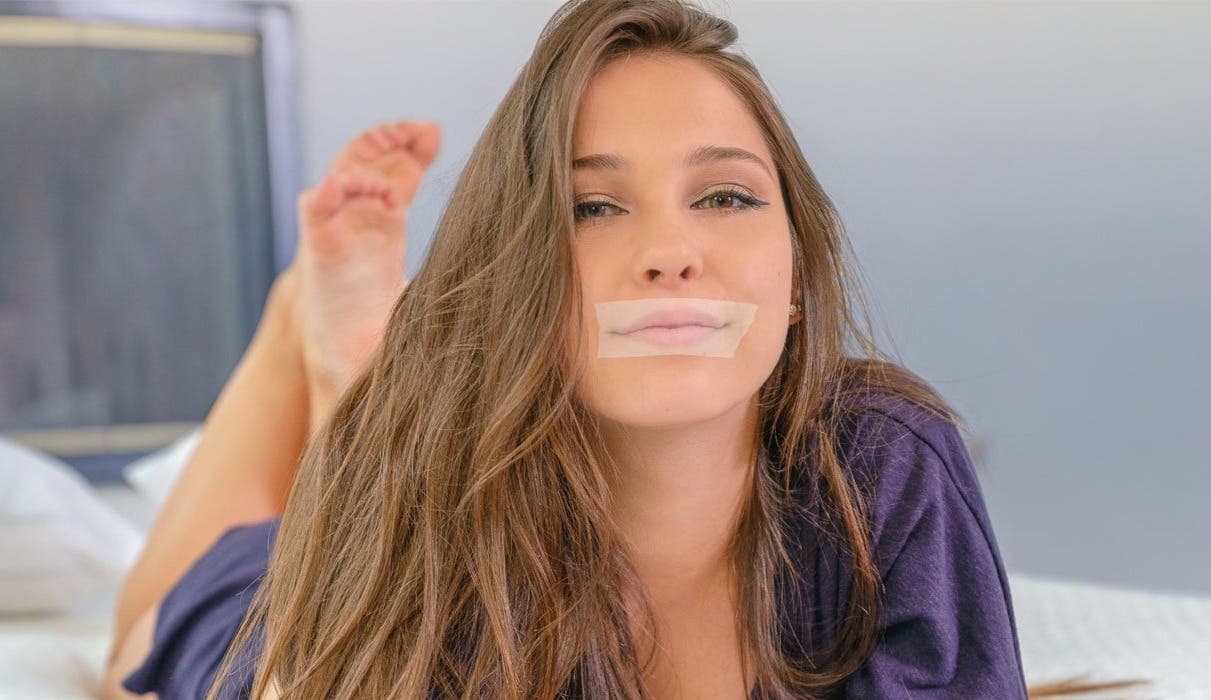Mouth taping found to improve quality of sleep and blood oxygen levels
It’s tough to tell your body to breathe through your nose at night, but you can force it to with a trick that’s growing in popularity.

[Oct 1, 2022: Caitlin Lockerbie]
Medical experts say mouth taping can improve the quality of your sleep and the benefits from that rest. (CREDIT: Creative Commons)
It’s tough to tell your body to breathe through your nose at night, but you can force it to with a trick that’s growing in popularity.
Medical experts say mouth taping can improve the quality of your sleep and the benefits from that rest.
Dr. Hilary Dalton of Dalton Dental says it’s a simple as it sounds: taping your mouth shut. However, how you do that is key.
She suggests using a barrier, like Vaseline, around your lips and then using a porous tape that you’re comfortable with, “they recommend Somnifix but there’s also all kinds you can get at CVS, Walgreens, any of the drug stores or Publix,” she says any kind of surgical or medical tape is fine, just “don’t use duct tape, people!”
The goal is to force nose breathing at night, but you want to be able to easily remove the tape.
Related News
“You’re getting that more moist air versus the mouth,” says Dr. Dalton. She explains, “it actually filters dust and allergens, your mouth doesn’t do that.”
She says, avoiding a dry throat and mouth also leads to better dental health.
“Just think of it logically, going through your mouth is drier. So, when your saliva is the defender, you have good and bad microbiome so the good is protecting the teeth, so when you don’t have it what’s going to be your protection against cavities?”
Studies show other significant health benefits from nose breathing, including increased nitric oxide in the sinuses, which leads to reduced inflammation and improved immune system.
Mouth breathing can lead to high blood pressure and sleep apnea. It also can worsen asthma, and deprive the organs of optimal oxygenation.
Dr. Dalton explains, “according to the studies, you’re getting a 15 percent increase in oxygenation through the nasal passages versus the mouth, which is pretty good."
Dr. Dalton. (CREDIT: Creative Commons)
She says there are some people who should avoid this tactic including those who suffer from allergies or a deviated septum.
“Some kind of narrowing of passages, has a lot of mucosal problems due to allergies…or where you’re really, during the day, you’re standing up and you feel you can’t breathe, I wouldn’t put something on my mouth.”
For more science and technology stories check out our New Discoveries section at The Brighter Side of News.
Note: Materials provided above by Caitlin Lockerbie. Content may be edited for style and length.
Like these kind of feel good stories? Get the Brighter Side of News' newsletter.
Joseph Shavit
Head Science News Writer | Communicating Innovation & Discovery
Based in Los Angeles, Joseph Shavit is an accomplished science journalist, head science news writer and co-founder at The Brighter Side of News, where he translates cutting-edge discoveries into compelling stories for a broad audience. With a strong background spanning science, business, product management, media leadership, and entrepreneurship, Joseph brings a unique perspective to science communication. His expertise allows him to uncover the intersection of technological advancements and market potential, shedding light on how groundbreaking research evolves into transformative products and industries.



